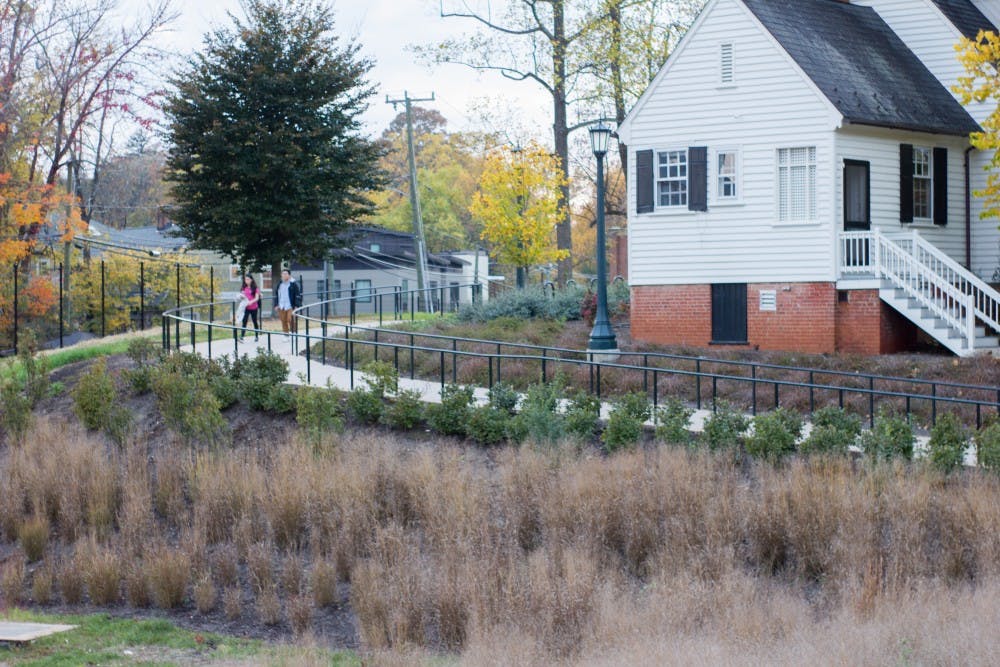Student Council’s Diversity Engagement Committee launched Disability Awareness Week Monday with a meeting of the Chronically Ill and Disabled Cavaliers, a student-run organization to create fellowship for disabled and chronically ill individuals. Followed by a panel on intersectional disability identities, this week’s events aim to promote dialogue about issues faced by students with disabilities and reduce the stigma surrounding disabilities.
Third-year College student Joy Collins, who chairs Student Council’s Diversity Engagement Committee, said this week’s all-encompassing events were organized to create “a continuum of conversations where students are being exposed to a lot of the struggles that [disabled] students here face on a day-to-day basis.”
Second-year Engineering student Emily Flynn, who serves as vice chair of disability on the committee and another organizer of the week’s events, said that she hopes to bring disability awareness to the general public in various ways.
“A lot of the issues having to do with disability and accessibility that people face, I think people should know more about those,” Flynn said. “The disability identity … is not something that’s discussed a lot at U.Va. or in general and I think that this is a really good way to start talking about that and bringing it into kind of a place where it should be, as a minority identity.”
Being hard of hearing, Flynn said she changed the event name from Acceptance Week to Awareness Week this year.
“I changed it because this is the first time there has been someone in an actual disability position organizing it through Student Council,” Flynn said. “What I really wanted to do was, I didn’t think that the disability community needed to be accepted, I just thought that people need to be more aware of it.”
Flynn said she has encountered certain difficulties at the University even though people around her are generally accommodating.
“If I want to go to an event and I want to schedule captions and an interpreter for the event, I need about a week’s notice,” Flynn said. “But if they only start publicizing it say, three days out, then that’s a problem.”
Collins addressed other difficulties encountered by students with disabilities, which greatly limit their access to facilities on Grounds.
“Disabled students who want to have a Lawn room, they can’t really get on the Lawn without the ramps, and walking down along those hills, they are very difficult for students with disabilities to access,” Collins said. “In Old Dorms it’s not disability accessible.”
Disability Awareness Week will allow students with disabilities to share their stories and let the general public hear about these experiences.
Although Student Council has held events aimed at raising awareness of disabilities in the past, Collins said that this week’s events are aimed at engagement, rather than just acknowledgement.
“I think the way we have tried to lead this committee with Student Council this year is less [about just] acknowledgment and apathy and more advocacy,” Collins said. “A big part of diversity engagement is we always want to address intersectionality.”
On Monday, students attended the Chronically Ill and Disabled Cavaliers meeting. The event’s executive chair, third-year College student Lauren Butler, said that the discussion about disability is an ongoing dialogue.
“The setup for our meeting is that we have a different leader every week to lead the discussion about topics that related to students with disabilities and chronic illness,” Butler said. “The topic for this week is housing, which has been a real challenging for a lot of our members. For example, one of our members have roommate troubles, and that’s something I’ve experienced too.“
In addition to the meeting and panel on Monday, events this week include training for accessibility allies, an invisible disabilities panel, a disability identity dialogue and a panel where student experiences will be shared.
Barbara Zunder, director of Student Disability Access Center, said in an email to The Cavalier Daily that the University continues to improve access for people with disabilities.
“We have around 1,300 students who have disclosed their disability status to the University. The University celebrates disability as one of the many spectrums of diversity here on Grounds,” Zunder said. “We continue to work on improving accessibility around Grounds, such as adding ramps to historic buildings such as Memorial Gym.”







